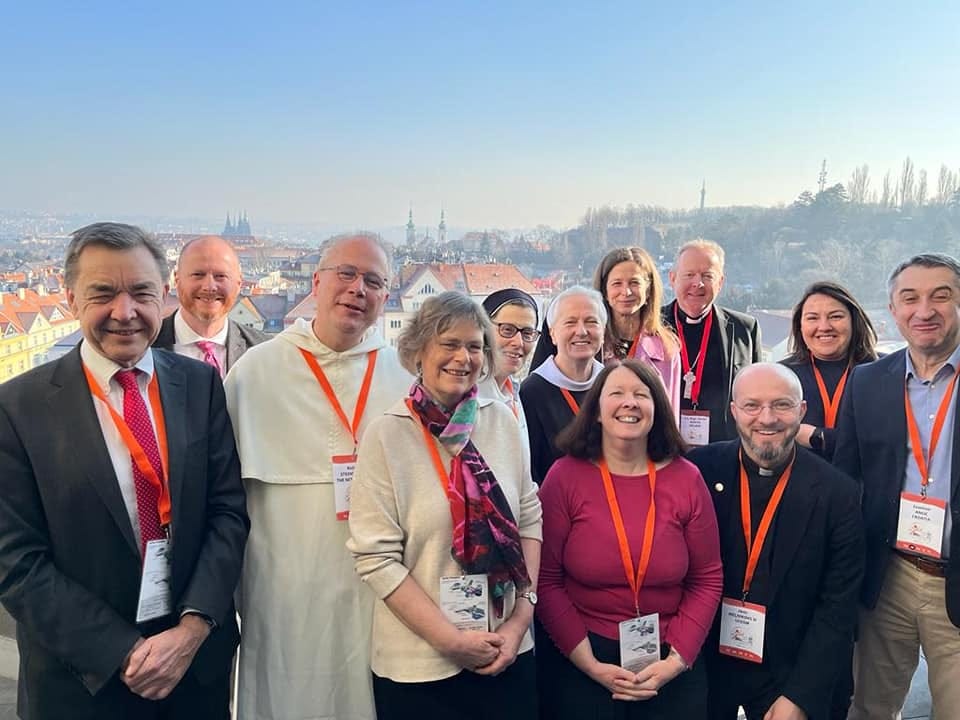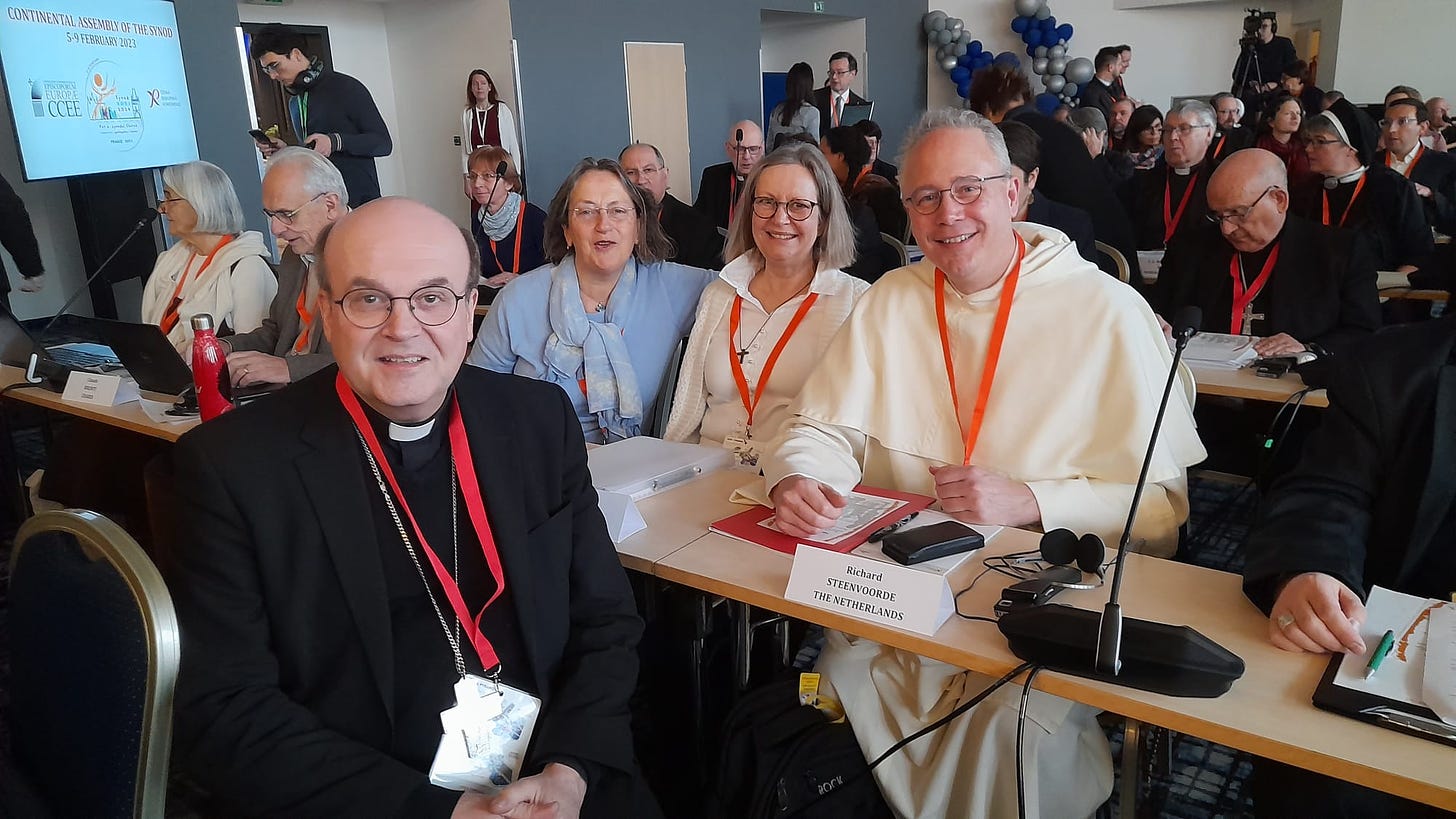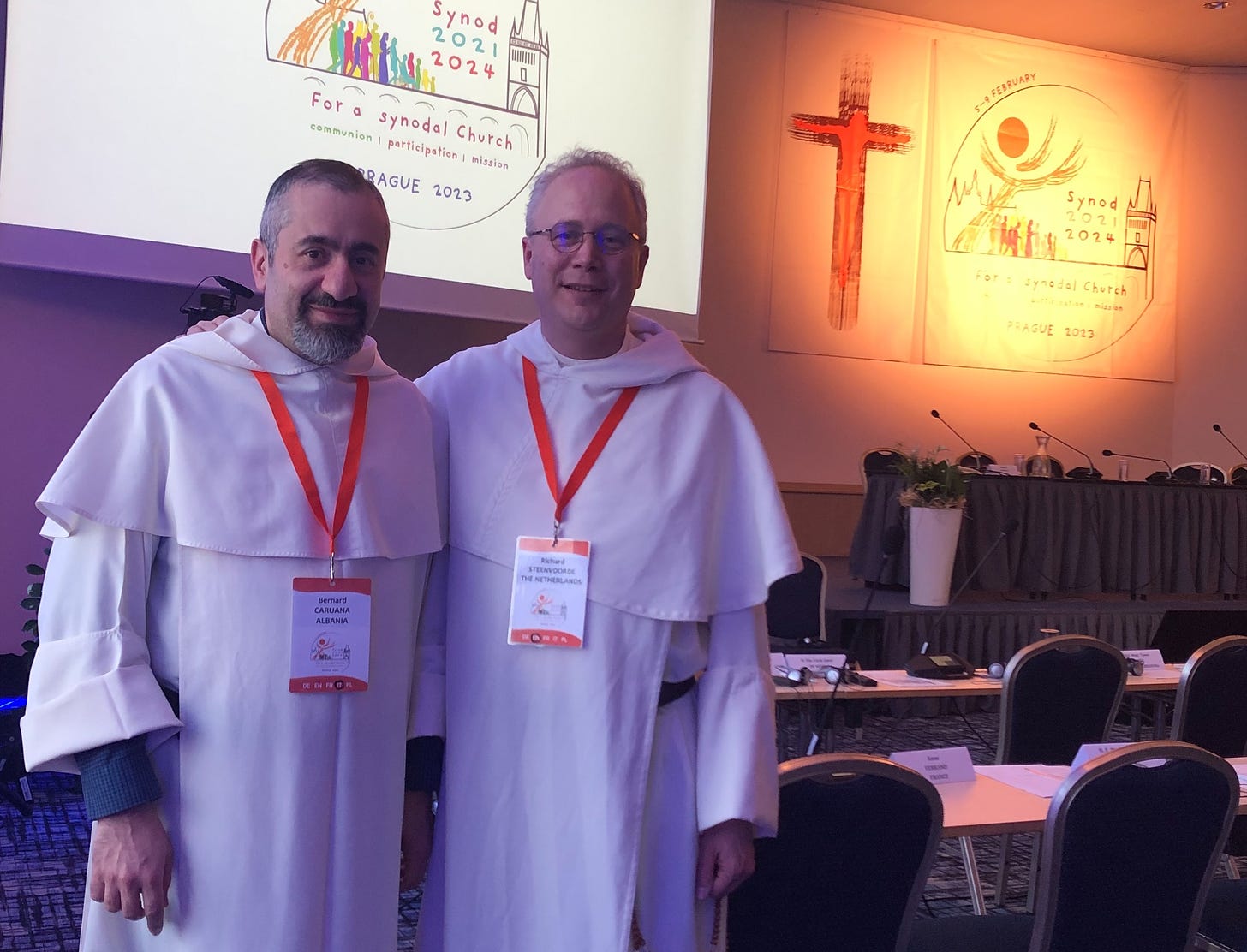The recent synodal meeting in Prague for the continental discussion in preparation for the Synod in Synods was a unique and transformative event. It brought about a conversation within the European Catholic Church that was long overdue.
The fact that we were able to have a conversation at all is an astonishing feat in and of itself. With representatives from 39 different European countries working in five different languages in the room and about 1200 participants joining the digital conference, it was an ambitious conference, to begin with. In addition, an important spiritual initiative supported the synod. Around Europe, 180 monasteries and religious communities had committed themselves to pray 24/7 while the synod was taking place.
The conference in Prague was organised by the European Bishops Conference (CCEE). For some people, this caused some anxiety: would they be able to say what they wanted to say freely? Would critical remarks be allowed? In the end, I think all participants were actively " listening” and open to what was being shared in the plenary meetings and working groups. In a more spiritual way, you could say that the Holy Spirit was doing the teaching, which does not mean that everything that was said or done in Prague can be attributed to the Holy Spirit. More discernment and further conversion are certainly needed.
Our delegation: bishop Hans van de Hende, Monique Van Dijk-Groeneboer, Lisette van Oordt, and myself (Picture: thanks to Hendro Munsterman)
A journalist asked one of our delegation members whether the synod had really attempted to do what pope Francis had asked us to do or whether people had been pushing for their own agendas? We managed to do the former, and some people tried to do the latter, but in the end, they were unsuccessful. This synod was not about pushing forward this or that agenda. Discernment is different from putting things on the ecclesial agenda. That is not to say that the outcome of the synod at Prague will not affect the ecclesial agenda.
But first, it is important to understand that the synodal process calls for conversion. Conversion needs to take place at multiple levels. First, how do I become a better follower of Christ at the personal level? And what does that mean in how I relate to other people, especially those with whom I disagree? Secondly, there are conversions needed within the Church as a whole. How do we prevent the Church from splitting over the differences between laity and ordained ministers? How can we listen to and include those hurt and marginalised by the Church? In what ways can the Church accompany LGBTQ+ people on their faith journey? How can we incorporate more women at all levels of the Church’s mission and governance?
Of course, many more issues were discussed, but underneath all of them was a fundamental concern: how do we, despite all our differences, move forward together as the Church in Europe? The beginnings of an answer lie in the idea that we all share in one baptism. Hence, this synod also had a solid ecumenical input through representatives of other churches and Christian communities. But unfortunately, the young people in the church are largely missing from the synodal process. This worries me. Young people are not just the church's future; they are part of the church now, and hence they should be included in the process.
With brother Bernard (province of Malta), who works in Albania.
I am impressed by the spiritual method of discernment, but, as one participant said, we need to have discussions and make decisions at some point. To which another participant added, yes, but then you need the scholastic method of making arguments; otherwise, it becomes a mess. This little exchange made me reflect. Can we contribute something from the Dominican experience to the synodal process as it moves forward? It is something that I will need to reflect on further.
For now, I am grateful to have been part of the days in Prague. And I am incredibly thankful for the fantastic cooperation within our delegation through which we came up with a joint statement.
And now for something completely different
As some of you know, and others will have noticed, I have moved back to Rotterdam for personal reasons. No worries, I am well. My move means that the content of the Dominican Dispatches will change slightly as they are no longer coming from Leuven but from whatever new mission I will be “dispatched” to. In the meantime, I will teach systematic theology and supervise some theses at KU Leuven.





